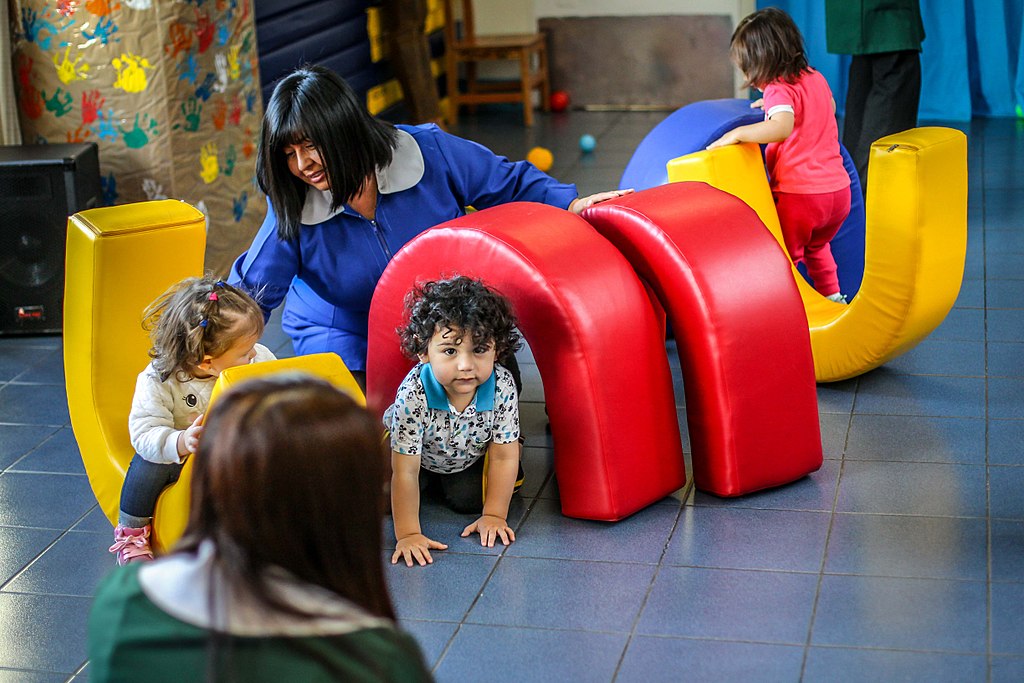AIPA, Association for the Inclusion of People with Autism, was created by families interested in promoting the full inclusion and quality of life of people with autism in our society. It was founded in Salamanca on October 16, 2021, with its scope of action in Castilla y León, Spain.
Initially our approach focuses on carrying out actions that favour and facilitate the educational inclusion of this collective. Our aim is to offer free high-quality training for the entire educational community related to the needs of students with autism throughout their entire school life so that, based on understanding and knowledge, it is possible to: respond to their specific needs, enhance their strengths, and eliminate barriers that prevent their optimal development.
We fight for inclusive education, understanding inclusion as an ethical value and a universally recognized right. We firmly believe that it is possible, but this requires models of intervention that are inclusive and oriented to quality of life. The best future in terms of personal well-being and quality of life does not depend so much on the level of the disorder as on the support and opportunities offered, with positive attitudes and with confidence in their progress and development from the people around them (Tamarit et al, 2013).
What is educational inclusion?

The term educational inclusion highlights the need for the school to respond to the diversity of the students in its classrooms, guarantee quality education for all and ensure equal opportunities regardless of the individual characteristics of each child. Inclusion ultimately involves valuing and respecting differences rather than judging and excluding them.
(DELETREA 2017)
Inclusive education is based on the conviction that education is a fundamental human right enshrined in the Convention on the Rights of the Child (1989).
The UN Convention on the Rights of Persons with Disabilities (2006) establishes the obligation for States parties to ensure full compliance with the right to inclusive education by making reasonable adjustments and providing the necessary support. This convention was ratified by Spain on 03-30-2007 and entered into force on 05-03-2008. In 2014 and with the unanimous support of all parliamentary groups, a non-legislative proposal for the elaboration and development of a Spanish Strategy on Autism Spectrum Disorders was approved in the Spanish Congress of Deputies, which was approved by the Council of Ministers on November 6, 2015 and in which the following objectives are recognized, within the strategic line 9 dedicated to education, among others: “Promote a specialized, inclusive and quality education for students with ASD, advancing in the development of educational legislation (…) ”; “Encourage the participation of each student with ASD in all aspects of the educational environment (including non-school periods: dining room, extracurricular activities, etc.)”.
However, in its investigation report of 2017, the UN states that Spain violates Article 24 of the said International Convention by maintaining “discriminatory and segregating” structures and devices that are incompatible with the international treaty. For its part, Sustainable Development Goal 4 of the 2030 Agenda, approved by the United Nations, connects the ambition of inclusive quality education with the need to promote sustainable human development. The World Education Monitoring Report (UNESCO 2020) makes an explicit call for it to be understood that inclusive education is an aspiration for “everyone, without exception,” and the most vulnerable should be at the forefront of the plans. of action since they face more barriers.
In summary, inclusive education is understood as the process that helps to overcome obstacles that limit the presence, participation and achievement of students, as well as the process of strengthening the capacity of the educational system. Inclusion will only be achieved through changes in school cultures, practices, and policies.
What are the association’s main goals?
All of our goals are aimed at promoting the full inclusion and quality of life of people with autism in our society. We are especially interested in facilitating educational inclusion, since we detect that many families encounter difficulties at school and in the educational environment for various reasons.
Children with ASD (Autism Spectrum Disorder) and their families encounter various obstacles during their schooling process due to numerous factors: lack of specialized training for teaching staff, educational models that seek group-class uniformity, exclusionary criteria, guidelines and habits in schools, and lack of staff, technical and financial resources in schools. On many occasions the system tends to recommend the transfer of students with ASD to Special Education Centres.
The school has the difficult task of ensuring a quality education for all regardless of individual characteristics. It must guarantee equal opportunities for all students in its classrooms, respecting and valuing differences without judging them. But to be able to respond to all its students without exception, support is needed and training and specialization are needed. In the case of students with ASD, the very characteristics of the condition will modulate their learning possibilities. For this reason, it is necessary to know what these are and to equip ourselves with effective strategies and tools. We need specialists in autism in schools who know what it involves and know what kind of support is needed in each case.
We want to contribute and do our bit in making real educational inclusion possible by helping different professionals to train, fostering collaboration between family and school, supporting a positive and trusting attitude. The entire educational community has to get involved in the inclusion of students with autism throughout their entire school life, based on understanding and knowledge to be able to respond to their specific needs, enhance their strengths, and eliminate barriers that prevent their development.
